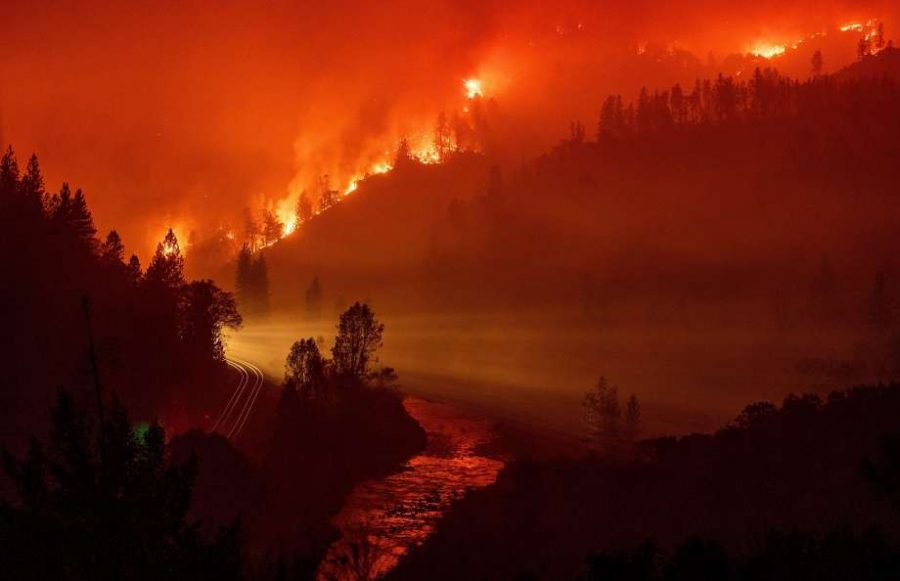Climate Change and Last Year’s Wildfires in California
The horrific wildfire that ravaged California last November that killed at least 85 people, destroyed 14,000 residences and 71,000 total structures, and charred an area the size of Chicago has finally been fully contained, according to authorities.
The fire started on November 8th in the foothills of the Sierra Nevada and became the deadliest wildfire in California history. According to The Washington Post, high temperatures, gusty winds and parched vegetation contributed to its rapid spread.
Research shows that changes in climate, especially earlier snowmelt due to warming in the spring and summer, have created hot and dry conditions that are perfect for wildfires. To make matters worse for forest fires not only in California but across our nation, President Trump recently cut $14 million in forest conservation funds.
But why should you care about wildfires in California? Why are they dominating the headlines on major news networks and radio stations across the country?
Wildfires are not just a part of scientific reports composed by scientists. Wildfires are not just a projection that is going to happen in the future. Wildfires are happening right now. They are ravaging and killing hundreds of people and destroying thousands of homes across the country, most recently in California.
Wildfires in California are one of the major warning signs of climate change. According to Union of Concerned Scientists, “These hot, dry conditions also increase the likelihood that wildfires will be more intense and long- burning once they are started by lightning strikes or human error. Though the current trend of increasingly severe wildfire frequency in parts of the US is projected to continue as the climate warms, droughts and wildfires are not equally likely to occur.” The report claims, however, that “as the world warms, we can expect more wildfires.”
These apocalyptic effects of climate change seen in California and elsewhere across the country are already impacting the Main Line. One of the more obvious effects is that temperatures are rising exponentially.
For example, we have been experiencing 60-degree days even during winter. That is not normal. According to NASA, “temperatures will continue to rise because human-induced warming is superimposed on a naturally varying climate. The temperature rise has not been, and will not be, uniform or smooth across the country or over time.”
Climate change is the reason that wildfires are happening, most recently in California. Of course, wildfires don’t happen on the Main Line, but the effects of climate change are felt by people across the Main Line. Studies show that allergies are on the rise in developed countries, including the United States.
A 2005 study found that plants are flowering earlier in the year, and total pollen production is increasing. While genetics plays a large role in all allergies, a longer and more intense pollen season could exacerbate them.
In addition, climate change is also extremely dangerous for the elderly. People that are above the age of 65 are two times as likely to have a heart attack on a hot summer day. High air temperature and ozone levels are especially bad for the elderly because they influence the way the autonomic nervous system functions. Higher temperatures also make the body more sensitive to toxins such as ozone.
Now let’s dive into the less apocalyptic piece. What can you do to be a part of stopping climate change? One of the best things to do is to become a vegetarian or at least eat more vegetables relative to animal products.
According to Forbes, “the share of greenhouse gas emissions from animal agriculture is usually pegged at 14.5% to 18%.” If everyone in the U.S. gave up meat and cheese just one day a week, it would be equivalent to not driving 91 billion miles, or taking 7.6 million cars off the road, according to the Environmental Working Group.
Secondly, buy local food when you can. By doing this we can minimize transportation of goods, we mitigate climate change. So, when you hear family or friends saying that there is nothing they can do to prevent climate change, tell them to stop eating so many hamburgers.

Chea Steinbach '20 is excited to begin his second year writing for the Banner. He describes himself as a "huge history buff" and also loves to write about...


